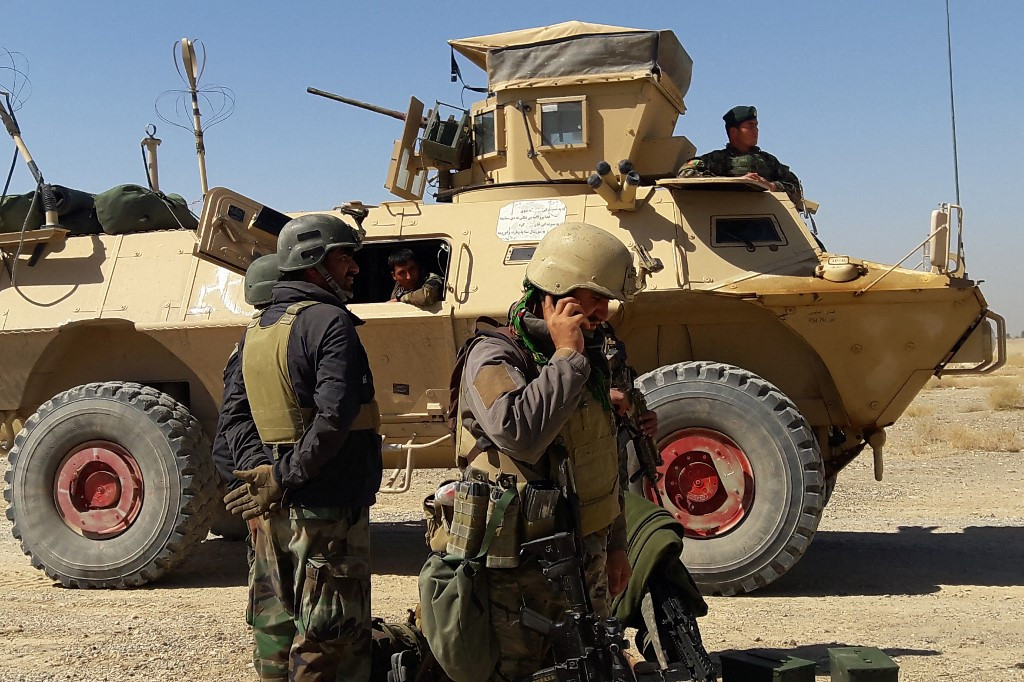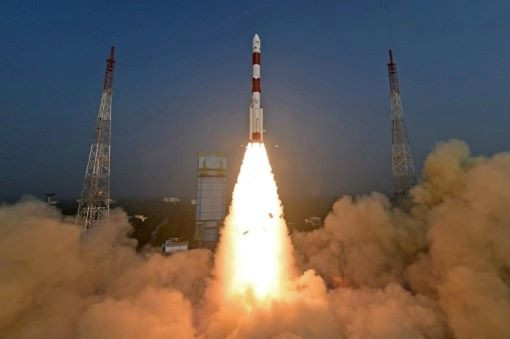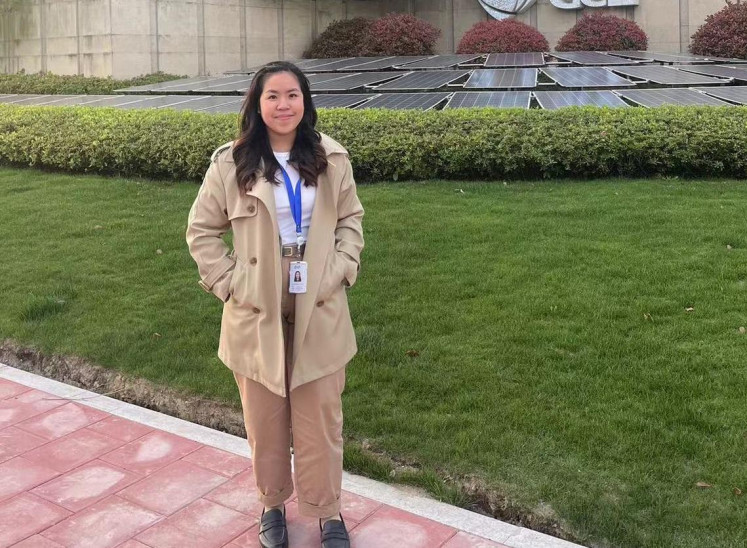More violence in Middle East?
While it is anyone's guess as to what awaits Afghanistan and its people after the US finishes withdrawing its troops, Washington's major takeaway from its two failed campaigns in the region is that regime change by force is an impossible undertaking.
Change Size
 Afghan troops stand near an armored vehicle during ongoing fighting between Afghan security forces and Taliban fighters on May 5, 2021 in the Busharan area, on the outskirts of Lashkar Gah, the capital city of Helmand province. (AFP/Sifatullah Zahidi)
Afghan troops stand near an armored vehicle during ongoing fighting between Afghan security forces and Taliban fighters on May 5, 2021 in the Busharan area, on the outskirts of Lashkar Gah, the capital city of Helmand province. (AFP/Sifatullah Zahidi)
T
he world is bracing for more uncertainty and potential violence in the Middle East as the United States and its allies withdraw all troops from Afghanistan this month.
The region looks far more unstable than when the US bombed Kabul and occupied Afghanistan in 2001 as part of its “war on terror”. The geopolitical landscape has changed so much and is now more complex, with more states and non-state players fighting to further their interests.
We were living in a unipolar world 20 years ago, when US president George W. Bush launched the war in Afghanistan. An overconfident US invaded Afghanistan in 2001, and then Iraq two years later, in an attempt to establish friendly regimes in those countries and reshape the geopolitical map of the oil-rich Middle East.
Now, not only has US military power been cut down to size following the two unwinnable wars, but the region has also seen the emergence of new regional players, particularly Iran, and the return of major powers Russia and China. Before its defeat last year, Islamic State (IS) was also in the region, trying to carve out a new country along the Iraqi and Syrian borders.
Far from being decimated by US forces, the Taliban, which ruled Afghanistan in 2001, have regrouped and are seizing northern territories from the US-trained Afghan military. The Taliban are merely waiting for the US to complete its withdrawal before going for Kabul.
President Joe Biden has his reasons for pulling out US troops from Afghanistan before the 20th anniversary of the 9/11 terrorist attacks. For one, public support for the war has diminished. A Brown University study has tallied the costs of the US war in Afghanistan at more than US$ 1 trillion, with over 2,000 American soldiers killed and some 20,000 others injured, according to the BBC.
It’s time for the US to admit defeat and cut its losses. Meanwhile, unmentioned in American political discourse is that fatalities among the Afghan population reached more than 250,000 people.
What awaits Afghanistan and the region after the US withdrawal is anybody’s guess, but we’ll know soon enough. Washington cannot wash its hands of the mess that it created and is now leaving behind. But sending troops back to Afghanistan should not be contemplated. The US is not the superpower it once was. Peace in the Middle East can only be built through negotiations that involve all other big powers as well as regional ones.
The US’s two successive defeats in Iraq and Afghanistan should be a humbling experience. The chief lesson that should sink into the minds of the officials running the White House and the Pentagon is that regime change by force is an impossible undertaking.
It costs much money and many lives, and when you inevitably lose, you are likely to leave behind an even bigger mess than at the start. Your best bet is to work with the forces in those countries to help build a strong civil society.
They will then lead the transition toward a free and more democratic society because this is in their own interests, and not to serve America’s geopolitical objectives.









